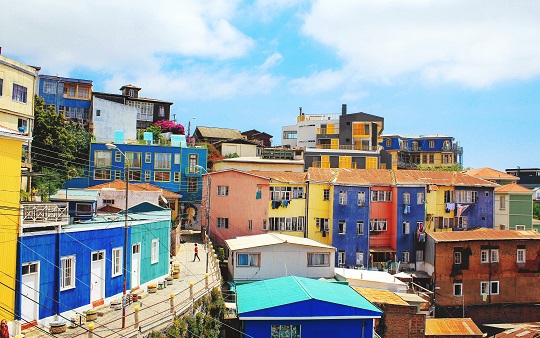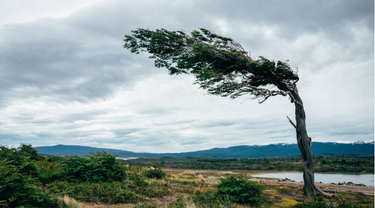

MyEDC account
Manage your finance and insurance services. Get access to export tools and expert insights.
Solutions
By product
By product
By product
By product
Insurance
Get short-term coverage for occasional exports
Maintain ongoing coverage for active exporters

Learn how credit insurance safeguards your business and opens doors to new markets.

See how portfolio credit insurance helped this Canadian innovator expand.
Guarantees
Increase borrowing power for exports
Free up cash tied to contracts
Protect profits from exchange risk
Unlock more working capital

Find out how access to working capital fueled their expansion.
Loans
Secure a loan for global expansion
Get financing for international customers
Access funding for capital-intensive projects

Find out how direct lending helped this snack brand go global.

Learn how a Canadian tech firm turns sustainability into global opportunity.
Investments
Get equity capital for strategic growth

Explore how GoBolt built a greener logistics network across borders.
By industry
Featured

See how Canadian cleantech firms are advancing global sustainability goals.

Build relationships with global buyers to help grow your international business.
Resources
Popular topics
Explore strategies to enter new markets
Understand trade tariffs and how to manage their impact
Learn ways to protect your business from uncertainty
Build stronger supply chains for reliable operation
Access tools and insights for agri-food exporters
Find market intelligence for mining and metals exporters
Get insights to drive sustainable innovation
Explore resources for infrastructure growth
Export stage
Discover practical tools for first-time exporters
Unlock strategies to manage risk and boost growth
Leverage insights and connections to scale worldwide

Learn how pricing strategies help you enter new markets, manage risk and attract customers.

Get expert insights and the latest economic trends to help guide your export strategy.
Trade intelligence
Track trade trends in Indo-Pacific
Uncover European market opportunities
Access insights on U.S. trade
Browse countries and markets
Get expert analysis on markets and trends
Discover stories shaping global trade
See what’s ahead for the world economy
Monitor shifting global market risks
Read exporters’ perspectives on global trade
Knowledge centre
Get answers to your export questions
Research foreign companies before doing business
Find trusted freight forwarders
Gain export skills with online courses
Get insights and practical advice from leading experts
Listen to global trade stories
Learn how exporters are thriving worldwide
Explore export challenges and EDC solutions
Discover resources for smarter exporting
About
Discover our story
See how we help exporters
Explore the companies we serve
Learn about our commitment to ESG
Understand our governance framework
See the results of our commitments
MyEDC account
Manage your finance and insurance services. Get access to export tools and expert insights.

During these challenging times due to the COVID-19 pandemic, EDC remains committed to helping Canadian businesses. In this new series, we’ll share feet-on-the-ground insights about markets around the world and how they’re being impacted by the health crisis. Today, we check in with two of our regional managers in Brazil and Chile.
The fourth-largest continent in the world, South America consists of 14 countries. Brazil, its economic powerhouse, is one of Canada’s largest trading partners and Chile is Canada's top investment destination. To find out how COVID-19 is impacting these countries, we spoke with EDC’s two senior regional managers in South America: Christian Daroch in Chile and Monica Busch in Brazil.
Daroch: Sectors highly affected by COVID-19 are related to retail/commerce, entertainment (cinemas, sports, hotels, restaurants), firms that provide consultancy services, like engineering, and factories since most of projects have been slowed down or put on hold. Companies that provide essential products and services, including power transmission, distribution, water, gas, supermarkets, and pharmacies, are less impacted. By company size, the most affected by this short-term shock are the small- to medium-sized enterprises (SMEs) and micro businesses because they have less financial backup or buffers.
Busch: Airlines, tourism, entertainment, and SMEs and highly leveraged companies in general. We notice that IT and companies producing essential goods are less impacted or not impacted—at least not yet—and companies transporting critical goods or offering critical services within the country are doing well.

Busch: The main challenges in Brazil:
Daroch: For Canadian companies operating in Chile, one of the challenges is the quarantines the government is implementing in several areas. They need to ensure a minimum operation, that they have teleworking capabilities, and sanitary measures—isolation or stop operations and/or projects—in place in case of infection at their sites. For Canadian SMEs, there’s the additional challenge to meet liquidity needs to pay office rental costs, refinance loans (with grace periods) and get working capital.

Daroch: There’s high uncertainty of how long this pandemic will last. The curve of infected people in Chile is increasing daily and it isn’t clear when and how big the peak of infected cases will be. There’s fear of insolvency for a good portion of SMEs. The government has put in place a robust economic package of US$9 billion to alleviate the situation for SMEs. Large companies are on their own with bank and capital market support only and face liquidity premiums. But overall, there’s sense of collaboration within the business community.
Busch: Overall perception is that the recession will be severe and the economy may take long to recover. There’ll be serious fiscal impact for Brazil given the necessary emergency measures taken, particularly to aid individuals and micro and small businesses aiming at insuring a minimum level of income and employment. Unemployment and informal work were already high before the COVID-19 crisis, so it’s also important to monitor any sign of increase of the risk of social unrest.
Daroch: We’re providing Canadian SMEs—exporters and Canadian Direct Investment Abroad (CDIA)—with market intelligence by industry and sector, buyer contact information to promote business through virtual meetings, entry strategies post-COVID-19, etc. For those in need of immediate financial support, we’re referring them to Chilean banks and informing them about the several measures the Chilean government has put in place to help alleviate financial pressures, including delaying taxes and offering loans with state guarantees. We’re also co-ordinating with our account managers in Canada and supporting Global Affairs Canada in Chile with consular activities if needed.
Busch: We’re providing market intelligence and information on local programs available for companies operating and employing in Brazil from government and private banks to address liquidity concerns. We continue to connect Canadian suppliers to local buyers, to build future exports for Canada, as well as discussing initiatives with companies interested in approaching potential partners when this emergency is over. We’re also virtually connecting CDIAs with partners and key players, including domestic and locally operating banks and the Trade Commissioner Service (TCS), and for Canadian companies, we’re raising awareness of the EDC/Business Development Bank of Canada (BDC) partnership in the Business Credit Availability Program (BCAP) and referring Canadian companies to their account managers in Canada for more targeted discussions.
To learn how EDC is helping international businesses manage the negative impacts of COVID-19, visit this page.

EDC’s Top 10 global risks reveal rising geopolitical, trade and economic threats for exporters in 2026.

Keep track of the international markets that matter to your business. Get the latest financial and macroeconomic information for both developed and emerging markets.

With growing risks, Canadian companies face new challenges. EDC’s Global Economic Outlook offers insights to help you make better business decisions.

Analyzing U.S. tariffs and CUSMA compliance to uncover the true costs for Canadian exporters.

Canadian exporters face tariffs, trade uncertainty and uneven growth across key sectors